Level:
Integrated academic studiesLength of studies:
5 years (10 semesters)Total ECTS credits earned:
300Acquired title:
Master of Pharmacy (MPharm)Language of instruction:
English
AIMS
Main aims:
Accordingly, the aims of the study program of the Integrated Studies in Pharmacy are to enable students to perform the following activities:
- to enable students to independently perform activities related to the design, production, quality assessment and use of drugs
- graduates will be thoroughly acquainted with the composition of drugs, their chemical and physical properties, their production and use, and methods for the testing of the purity and strength of a medication.
- the study program will enable graduate students to understand the effects of drugs on the human body, what happens to them in the organism, and how they can be used in the most rational manner for diagnosis, prevention and treatment of diseases.
- to provide a deeply rooted knowledge of the basic principles of chemistry, biology and physics that can be used in pharmacy :
- to train graduate students to apply these principles to solve specific problems in pharmacy.
- to ensure the acquisition of specific skills for experimental design and analysis of experimental data.
- to promote understanding of the pharmaceutical profession as a discipline oriented towards the patient, and master the role of a pharmacist within the health care system and pharmaceutical industry.
- to encourage the development of communication skills with patients and the ability to use modern information technology for the benefit of patients.
- dispensing of drugs, their use and analysis of prescribing.
- monitoring the safety, efficacy and economical aspects of the therapy.
- to recognize the basic symptoms of disease.
- to recognize adverse and toxic effects of drugs and to report them.
- safe handling of chemicals , pharmaceutical materials and medical devices
- development of magistral and galenic drugs.
- to develop the ability for individual and group work.
- to encourage and stimulate technical and scientific curiosity, and enthusiasm for acquiring new knowledge, which will be a solid basis for permanent learning and professional development
Accordingly, the aims of the study program of the Integrated Studies in Pharmacy are to enable students to perform the following activities:
- health care (primary, secondary and tertiary health care; institutes)
- industry (pharmaceutical manufacturing, drug distribution , marketing of drugs)
- education, science and research (Secondary, graduate and postgraduate education, scientific research , continuing professional education)
- legislation (Agency for Medicinal Products and Medical Devices of the Republic of Serbia and other relevant institutions).
COMPETENCIES
Upon completion of the study program of Integrated Academic Studies in Pharmacy graduate students acquire the academic title of Master in Pharmacy and are qualified to perform pharmaceutical services after doing internship service and passing the professional examination in accordance with the provisions of the Rules of Apprenticeship and Professional Examination of Health Workers and Health Assistants (Official Gazette of the Republic of Serbia 50/06).
In the field of pharmaceutical services their competences include:
The Diploma also allows the admission to postgraduate academic and PhD studies in the field of medical sciences (pharmaceutical and medical sciences) and the field of natural-mathematical sciences (biology, physical chemistry and chemistry) provided that the average grade in the course of study is at least 8 (eight).
The outcome of studies is a set of knowledge and skills that students should have after completing the studies.
Knowledge
Skills
The learning outcomes are defined in accordance with the criteria for acquiring knowledge in the biological, biomedical and dental scientific fields, as well as practical skills and professional attitudes necessary for independent work.
Learning outcomes provided by the structure of the curriculum of the study program, enable the acquisition of knowledge (K), Skill (A) and attitude / behavior (AB) in the following categories of competence (outcomes):
In the field of pharmaceutical services their competences include:
- implementation of preventive measures for the preservation and protection of public health and health promotion
- improvement of pharmacotherapeutic measures and procedures in the rational use of medicines and certain types of medical devices
- rationalization of costs for the implementation of the established therapeutic treatment protocols
- monitoring the adverse reactions to drugs and medications, as well as avoiding or minimizing these reactions
- avoiding interactions when applying duplicate therapeutic drugs
- development of galenic and other drugs in accordance with the law
- other tasks within pharmaceutical health services in accordance with the law.
The Diploma also allows the admission to postgraduate academic and PhD studies in the field of medical sciences (pharmaceutical and medical sciences) and the field of natural-mathematical sciences (biology, physical chemistry and chemistry) provided that the average grade in the course of study is at least 8 (eight).
The outcome of studies is a set of knowledge and skills that students should have after completing the studies.
Knowledge
- knowledge and critical understanding of the basic facts, principles and theories related to the field of pharmacy
- ability to apply the acquired knowledge in practice and understanding necessary to meet the needs of patients and persons professionally engaged in health activities
- locating and analyzing problems and planning strategies for their solution
- critical evaluation, interpretation and integration of pharmaceutical information and data
- creation of professional and scientific documentation for the specific area of pharmacy
- clear and correct presentation of professional and scientific content in the field of pharmacy in oral or written form, both for professional and for a wider audience
- calculation of therapeutic doses and regimes
- interpretation of clinical data on patients
- the ability to contribute to the development of the health system through practice, information and innovation
- interpretation of prescriptions and other orders for medicines and medical appliances.
Skills
- safe handling of chemicals and pharmaceutical materials, bearing in mind their physical and chemical characteristics
- risk assessment regarding the implementation of procedures
- individual implementation of pharmaceutical laboratory procedures
- planning, design and performing of original research, starting from the initial phase of recognition of the problem to the evaluation and acceptance of results and findings, with the ability to choose appropriate techniques and procedures
- operating standard pharmaceutical instruments
- critical assessment and interpretation of data obtained by observing the clinical and laboratory measurements, bearing in mind their importance and the appropriate theoretical basis
- preparation, production and distribution of medicines, including sterile products
- performing analysis of drugs
- the ability of counseling patients and others about safe and effective use of medicines
- ethical approach in all professional activities
- the ability for team work within the system of quality assurance.
The learning outcomes are defined in accordance with the criteria for acquiring knowledge in the biological, biomedical and dental scientific fields, as well as practical skills and professional attitudes necessary for independent work.
Learning outcomes provided by the structure of the curriculum of the study program, enable the acquisition of knowledge (K), Skill (A) and attitude / behavior (AB) in the following categories of competence (outcomes):
- integration of basic knowledge of medicine in dentistry;
- application of clinical knowledge and skills in the management of dental patients;
- professional standards and conduct;
- continual education and personal development.
ADMISSION OF STUDENTS
- completed four-year secondary education
- passed the test in Chemistry and Mathematics
CURRICULUM
The curriculum of Integrated Academic Studies in Pharmacy includes 57 courses and the Graduation Paper. Total number of training hours in the curriculum is 4380, out of which 4230 hours of teaching (2310 hours of theoretical and 1920 hours of practical teaching), and 150 hours for the writing of the Graduation Paper. Total number of ECTS points for this study program is 300 ECTS (60 ECTS per academic year), which includes the ECTS points awarded for the Graduation Paper (20 ECTS).
The structure of the curriculum (according to the distribution of ECTS points) is as follows: generalacademic courses (15.33% ECTS), theoretical and methodological courses (20.06% ECTS), scientific courses (33.0% ECTS) and professionally oriented courses (31.66% ECTS).
Besides general courses, the study program consists of courses in the field of Basic Natural Sciences, courses in Basic Preclinical and Clinical Medical Sciences, Pharmaceutical courses, as well as the courses in the area of pharmaceutical management and health legislation.
The most important teaching methods:
Practical work of students in the laboratories is performed as a demonstration of certain procedures or skills with the active participation of students and as independent and experimental work of the students with the defined goal (results of analysis, synthesis of preparation, etc.).
Seminars allow students to be independent and trained in the use of literature, electronic databases and presentation of selected topics they have prepared, with minimal help of teachers and assistants.
Field instruction enables students to carry out activities that cannot be adequately realized in the laboratory (e. g. collecting and processing of plant material) or to become familiar with certain aspects of the profession in real life conditions (e. g. visits to production plants).
The structure of the curriculum (according to the distribution of ECTS points) is as follows: generalacademic courses (15.33% ECTS), theoretical and methodological courses (20.06% ECTS), scientific courses (33.0% ECTS) and professionally oriented courses (31.66% ECTS).
Besides general courses, the study program consists of courses in the field of Basic Natural Sciences, courses in Basic Preclinical and Clinical Medical Sciences, Pharmaceutical courses, as well as the courses in the area of pharmaceutical management and health legislation.
The most important teaching methods:
- interactive theoretical teaching
- students` practical work in laboratories
- seminars
- field instruction.
Practical work of students in the laboratories is performed as a demonstration of certain procedures or skills with the active participation of students and as independent and experimental work of the students with the defined goal (results of analysis, synthesis of preparation, etc.).
Seminars allow students to be independent and trained in the use of literature, electronic databases and presentation of selected topics they have prepared, with minimal help of teachers and assistants.
Field instruction enables students to carry out activities that cannot be adequately realized in the laboratory (e. g. collecting and processing of plant material) or to become familiar with certain aspects of the profession in real life conditions (e. g. visits to production plants).




